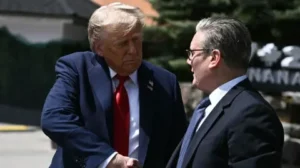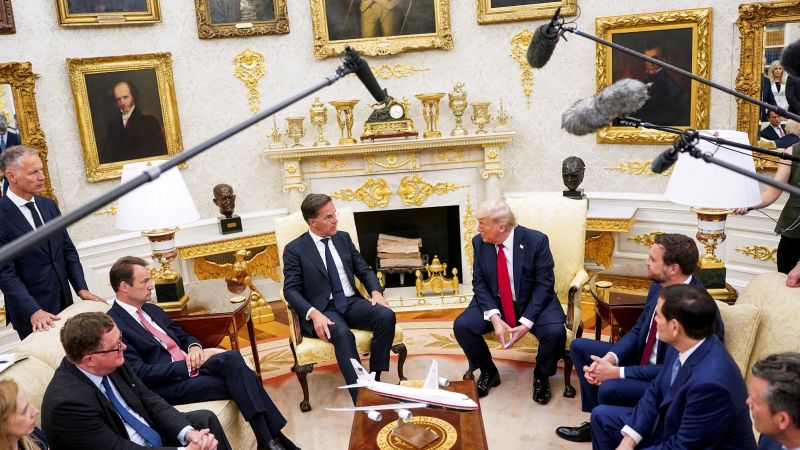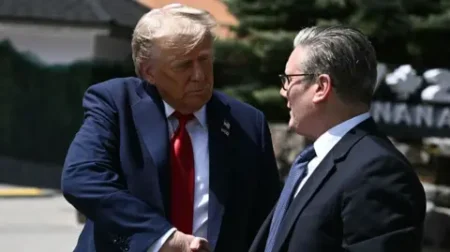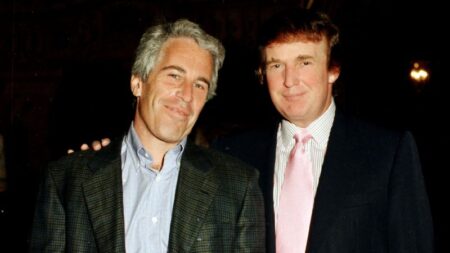In a recent analysis, Brett McGurk, a CNN global affairs analyst and former senior national security official under multiple administrations, explores the significant transformation in President Donald Trump’s policy toward Ukraine. This change is especially noteworthy when contrasted with previous interactions between the United States and Ukraine’s leadership. He emphasizes the importance of understanding the context by recounting two critical moments in the Oval Office.
The first pivotal scene occurred on February 28, when President Trump publicly disparaged Ukrainian President Volodymyr Zelensky. In a verbal confrontation that played out before a global audience, Trump asserted that Zelensky had “no cards,” suggesting that Ukraine had to concede to Russia, consequently advocating peace negotiations predominantly on Russian terms. This marked a troubling period for Ukraine, as shortly thereafter, the U.S. temporarily halted military and intelligence support, signaling a major shift in assistance to its ally.
In stark contrast, on July 14, during a meeting with NATO’s Secretary-General, Mark Rutte, Trump unveiled a new direction by pledging billions in military aid to Ukraine, including advanced anti-air systems, alongside imposing new sanctions on Russia contingent on President Vladimir Putin’s actions in continuing the war. This radical shift illustrates the evolving landscape of U.S. diplomatic efforts, transitioning from ineffective measures to a more robust strategy aimed at integrating military leverage to catalyze peace negotiations.
McGurk draws upon historical aphorisms, specifically quoting Theodore Roosevelt: “Diplomacy is utterly useless where there is no force behind it.” Reflected in his encounters as an envoy for the Obama and Trump administrations, this perspective resonates especially in the context of U.S.-Russia relations. His experience in negotiating with Russian officials, particularly with Alexander Lavrentiev, provide critical insights into the dynamics at play. During his tenure, McGurk managed to establish a diplomatic channel to mitigate conflicts, though he often found Russian actions contradicted their diplomatic assurances, demonstrating the often-untrustworthy nature of negotiations with Moscow.
The narrative crescendos with a dramatic 2018 encounter that underscores the tense and precarious balance between diplomacy and military readiness. That year, Russian-backed mercenaries crossed established boundaries, testing the resolve of U.S. forces, culminating in a decisive American counter-response that deterred further Russian encroachments in the region. McGurk likens the Russian approach to diplomacy to that of a bear dancing, where the bear dictates the dance’s conclusion unless countered by a larger bear, reinforcing the need for a show of strength in international relations.
As unfolding events in Ukraine continue to be subject to varying interpretations, McGurk notes Trump’s initial misreading of the roots of conflict, which led to reduced U.S. support. This miscalculation stemmed from a narrative suggesting U.S. involvement provoked Russia, rather than acknowledging the unprovoked nature of Putin’s aggression. The implications of these decisions reveal a detrimental approach to ceasefires, which ultimately emboldened Russian aggression.
The analysis highlights a turning point for U.S. policy as Trump confronts the decision between complacency and assertive engagement. Recent mechanisms appear to favor the latter, emphasizing military support and cooperation with NATO allies. By shifting strategy to reinforce Ukraine with military resupplies and pursuing unified sanctions against Russia, the Trump administration is working toward establishing a new diplomatic paradigm.
In the discussion of sanctions, McGurk points out bipartisan support in Congress aimed at imposing tariffs on nations participating in trade with Russia, thereby increasing pressure on Moscow to reconsider its aggression. With an ongoing acknowledgment of significant Russian losses in Ukraine and a declining ability to sustain the offensive, the urgency for the U.S. to maintain a coherent policy to force a reevaluation in the Kremlin is paramount.
In conclusion, McGurk asserts that America must sustain this renewed policy trajectory, ensuring the notion that the U.S. remains the most formidable actor in international relations, thereby signaling to Russia that support for Ukraine will not falter, and that the ramifications of continued conflict will come with escalating costs.











